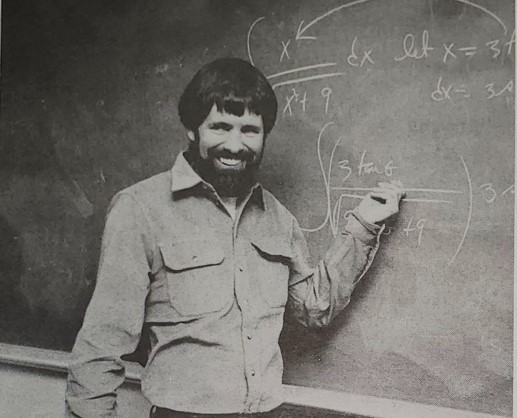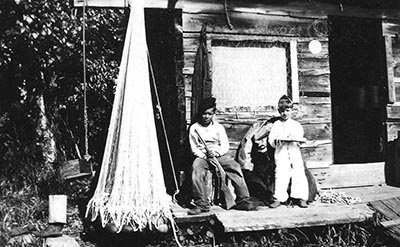In Memory of Ron Seater

It is with deep sadness that UAS learned of Ron Seater passing on January 3, 2022.
Ron began teaching at UAS as a visiting assistant professor of mathematics in 1984, and during the two plus decades he spent in Juneau he became a mentor for young faculty and a supportive teacher for struggling students, inspiring in them a passion for teaching and learning.
Under Ron’s leadership and encouragement, the UAS mathematics program grew from a fledgling program having a single full-time faculty member, himself, offering lower division and service courses, to a solid undergraduate degree-granting program. Soon after Ron’s retirement, in recognition of his contributions to mathematics education at UAS, the UAS mathematics faculty established the Ron Seater Mathematics Award. This is a scholarship award of distinction for students of mathematics at UAS.

Ron had a unique and highly effective style of teaching. Rather than deliver formal lectures he actively engaged his students, taking time to dig into and discuss topics and problems, ask questions, and encourage students to own their learning. The greatest testimony to Ron’s contributions in teaching at UAS lies in what his former students have to say about him. Many who took Ron's classes would say that he was the best teacher they ever had, and that he made mathematics fun, not terrifying. Others were amazed at how he could quickly recognize and remedy a misstep in their approach, or thinking, by simply asking questions. Ron was frequently thanked for the solid foundation his courses provided for their graduate studies. Most importantly, Ron’s students appreciated the genuine respect he extended to them, and the honesty and kindness with which he interacted with them.
Ron was also instrumental in developing and maintaining the Juneau Campus Learning Center. He envisioned it as a way to get students to study mathematics in a relaxed, friendly, and collaborative environment. This began as an informal student-run center, and grew over the years into an official learning center, and it continues to be a popular study area for students who wish to have quick access to guidance in mathematics and the sciences from their peers.

On his path to becoming a mathematics teacher, Ron’s life prepared him to be aware of the world that surrounded him. Ron's family initially arrived in Homer on the Kenai Peninsula in 1939 when he was two, and then moved to Anchorage in the early 1940’s. After settling in Anchorage, Ron’s parents set up a hand-pack salmon cannery at Boulder Point on Nikishka Bay, on the East side of Cook Inlet. There were no roads from Anchorage to the Kenai Peninsula in those days so each summer they would arrive at Boulder Point by scow, and spend the summer set-netting salmon to process in Seater Brand Salmon cans. Ron was 4 years old when he first went to Boulder Point with his parents and an older brother. He lived more outdoors than in, exploring the surrounding beaches and woods.
After more than two decades of beach fishing, Ron began gillnet fishing in the drift boat fleet. His final entry in commercial fishing was the halibut harvest, which he continued into his 70s. Being the sole visible boat in the solitude of the vast Gulf of Alaska, he would observe in awe as he reeled in his longline and discovered something new. Ron relished the opportunity to uncover the joy that understanding mathematics could bring his students, and balance this with his total immersion in nature through his summer fishing. He would routinely claim it was the perfect balance in an amazing life.
A little known detail about Ron’s life is that he was a member of the U.S.A. biathlon team at the 1960 Winter Olympics. Ron’s outdoor experiences enabled him to tell riveting stories and amusing anecdotes about his early days at Boulder Point, and notable adventures on his many multi-day treks in the wilderness surrounding Anchorage and on the Kenai Peninsula.
Ron’s impact on his students’ learning and his colleagues will continue on in institutional memory at UAS. However, one of his most cherished roles as a mentor extended beyond his classrooms to his grandchildren and great grandchildren, taking pleasure in watching as the very young reached new challenges, gaining satisfaction as they overcame these challenges, and marveling at their continuing energy to go on to explore life.